Not All Endometriosis Surgeries Are the Same—Here’s Why It Matters
Still in pain after endometriosis surgery? Learn the key differences between ablation and excision surgery, and why the type of treatment matters for lasting relief and fertility outcomes.
Dr. Smita Sinha
9/23/20253 min read
Not All Endometriosis Surgeries Are the Same
If you’ve undergone endometriosis surgery but still find yourself battling pelvic pain, fatigue, or fertility issues, you’re not alone. Many women feel disheartened when symptoms return—sometimes just months after surgery. One often overlooked reason? The type of endometriosis surgery performed.
Let’s break it down.
🔍 Understanding the Two Types of Endometriosis Surgery
When people hear the term “endometriosis surgery,” they often assume it’s a one-size-fits-all solution. In reality, there are two primary surgical approaches—and they’re not equal in terms of outcomes.
1. Ablation Surgery
Ablation uses heat or lasers to burn off visible endometrial lesions. This method targets the surface tissue but often misses the deeper, more invasive growths—especially in cases of deep infiltrating endometriosis (DIE).
👉 Pros:
Shorter surgical time
Widely practiced
👉 Cons:
Superficial removal only
High recurrence rate
Less effective for long-term pain and fertility
🧠 Empowering Yourself with Knowledge
As a patient, understanding the difference between ablation and excision gives you the power to make more informed decisions. It allows you to ask the right questions, seek the right surgeon, and advocate for your health confidently.
Here are some questions you can ask your doctor:
Was my endometriosis surgery ablation or excision?
Were all visible and suspected lesions removed from the root?
Should I get imaging or a second opinion to assess for recurrence?
Are there any co-existing conditions like adenomyosis or pelvic floor dysfunction that need to be addressed?
🩺 What You Can Do If You’re Still in Pain
Still struggling with symptoms after your endometriosis surgery? You’re not alone—and you’re not out of options.
Here’s what you can do:
Review your surgical records. Knowing the type of procedure performed is the first step.
Track your symptoms. Use an app or journal to monitor pain patterns, fatigue, or fertility concerns.
Seek a second opinion. Especially from a gynaecologist who specializes in excision endometriosis surgery.
Don’t delay follow-up care. Early action can prevent further complications or damage.
📞 Need Help?
To speak with a compassionate and experienced specialist, contact Dr. Smita, Consultant Gynaecologist at KPJ Selangor Specialist Hospital, Shah Alam.
💬 WhatsApp us at +60165833302 to book an appointment and get the personalised care you deserve.
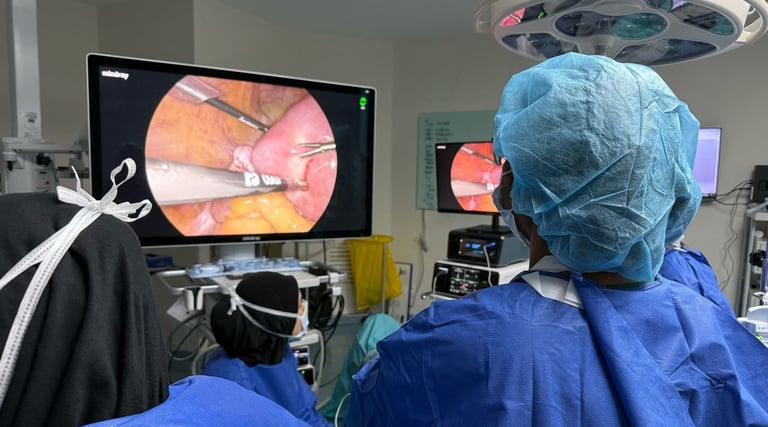



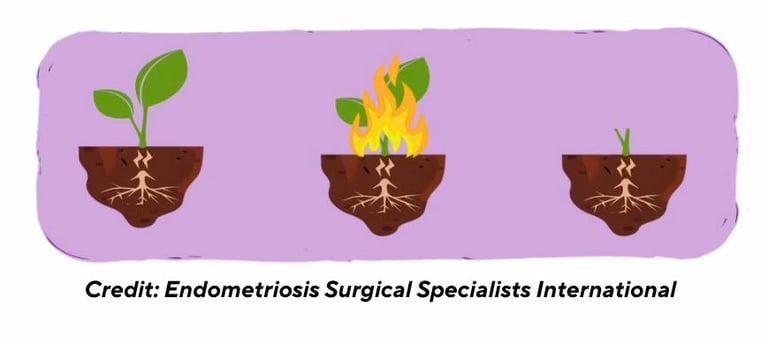

🎯 Why the Type of Surgery Matters
Many women are never told what type of endometriosis surgery they had. If your surgeon used ablation rather than excision, your symptoms might persist simply because the disease wasn’t fully treated.
Endometriosis is a complex and chronic condition. It’s not just about what’s visible—it’s about what lies beneath. Treating only the surface can leave behind lesions that continue to grow and inflame surrounding tissue, leading to more pain, hormonal disruption, and possible damage to nearby organs.
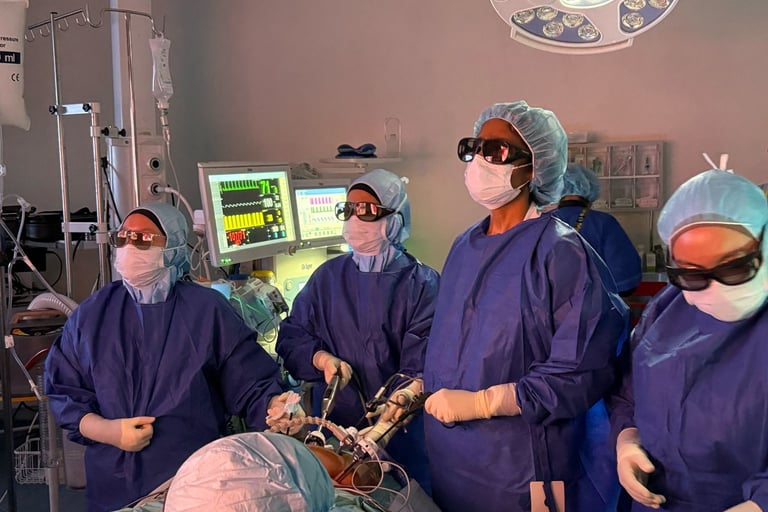

🌟 Final Thoughts: Excision Is the Gold Standard
While ablation may offer short-term relief, excision endometriosis surgery remains the gold standard—especially for moderate to severe cases or those trying to conceive. Although no surgery guarantees a cure, the thoroughness of excision gives you a better shot at long-term relief and restored quality of life.
Remember: recurring symptoms don’t mean you failed—they’re your body’s way of telling you that more support is needed.
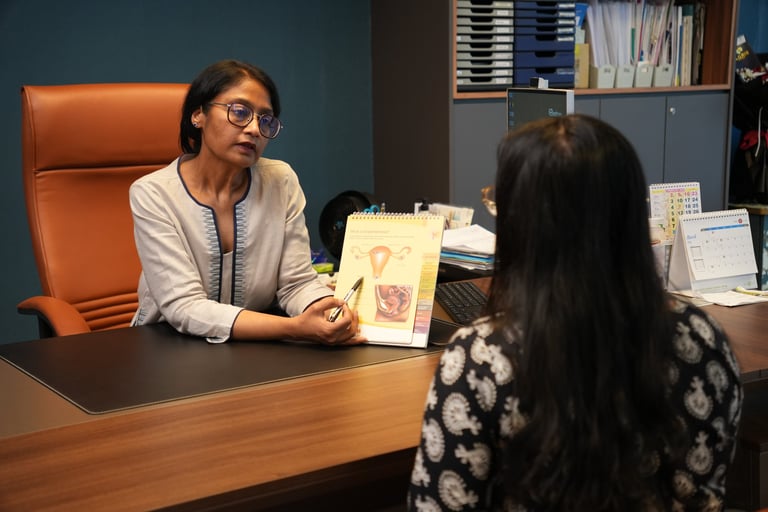

2. Excision Surgery
Excision is a more advanced technique. It involves cutting out the endometriotic tissue from its root, including deeper or hidden lesions that are often the real culprits behind ongoing pain.
👉 Pros:
Better pain control
Lower recurrence rate
Higher chances of fertility restoration
👉 Cons:
Requires a highly skilled surgeon
Takes longer to perform
May need a multidisciplinary team if organs like bowel or bladder are involved
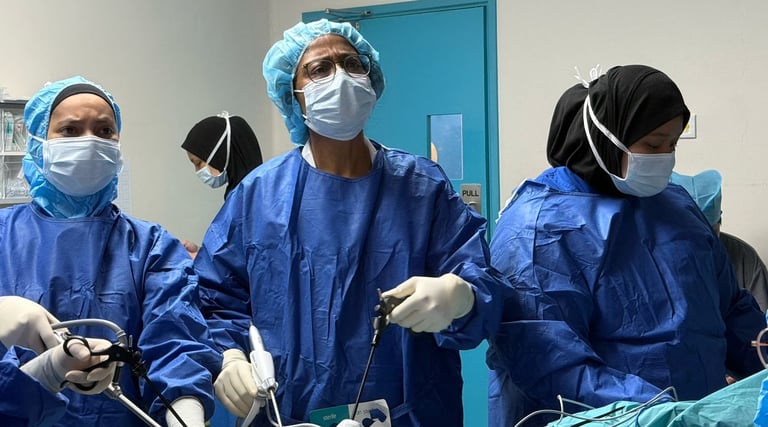

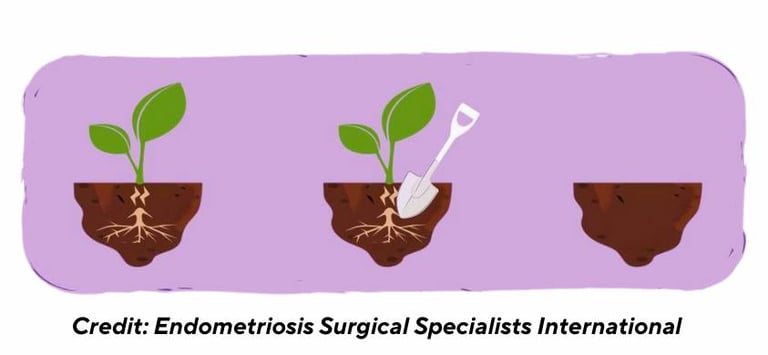

Contact Us
Clinic: +60355433285
Whatsapp: +60165833302
Email: smitaobgyn@gmail.com


Why Us?
About Us
Services
Endometriosis
Robotic Surgery
Articles
